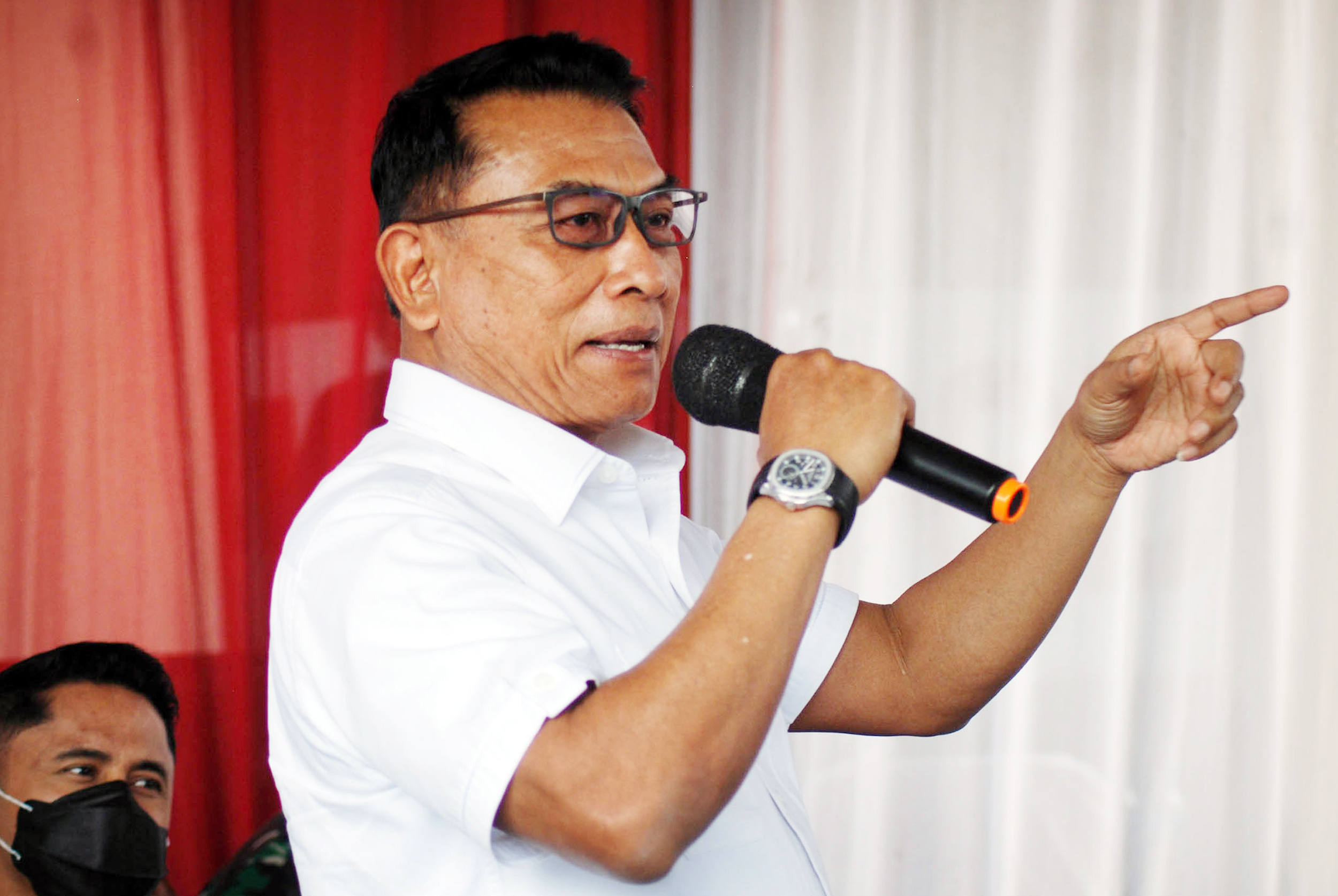
This report was written by Agung Sedayu as part of Bagja Hidayat's Rainforest Investigations Network project. To read in bahasa Indonesia, click here.
An interview with the Presidential Chief of Staff Gen. (ret) Moeldoko, whose company, M-Tani, is working on a food estate project in Central Kalimantan. Is there a conflict of interest?
The government initiated a program to increase national food supply through food estates in the middle of last year. Several areas became the focus of this program. However, in Kalimantan, the food estate project was started when all requirements, even the regulations, had not been issued. Moreover, President Joko Widodo appointed Defense Minister Prabowo Subianto as the project leader.
Although the operator is a state institution, in the field, companies are allowed to take part in the implementation of the project. One such company is M-Tani. The company owned by the Presidential Chief of Staff Moeldoko manages dozens of hectares of peatland in Kapuas, Central Kalimantan. To Tempo on Tuesday, September 21, the commander of the Indonesian Military (TNI) in 2013-2015 explained the role of the army and the involvement of his company in the food estate project.
Why is the food estate project being handled by the ministry of defense?
This project has two leaders, the ministry of defense for the development of cassava and the ministry of agriculture for other foods. So the appointment of the ministry of defense has a basis. Food security is part of national defense.
What is the basis of this?
The President has discretion. In addition, our defense strategy is the defense of the strategic compartments. Within it is a strategy to build defenses on large islands. So if one island is attacked, it can defend itself. In order to survive, the island must have sufficient logistics so it is not dependent on food supplies from outside the island. Kalimantan, Sumatra and Papua are some of the islands that are prepared to have logistical independence. In essence, the President is managing logistics and national logistics reserves so that we would be ready in the event of a global food crisis.
Soldiers are taking care of the fields. Is that not against their duty?
In the TNI Law, it is stated that the task of the TNI is to carry out military operations for war and military operations outside of war. Article 7 of the law states that one of the tasks of the military apart from war is to assist the government in the regions. The food estate is a regional government program so the army can help. The soldiers involved are also not from combat units or combat reserves, but from territorial units only.
Why was the food estate project started before there were regulations?
There are urgent conditions, conditions that require quick action. We are racing against time. A warning from the Food and Agriculture Organization (FAO) said that there would be a world food crisis due to the (Covid-19) pandemic and climate change. Additionally, our agricultural land continues to shrink. There must be immediate steps to anticipate the food crisis. The solution is to immediately repair and open new land, especially outside of Java. So when there is a food crisis, we already have adequate land reserves and food stores.
In Kapuas, the supplier of seeds and fertilizers for the food estate project is M-Tani, your company.
M-Tani’s presence is voluntary, on the land that has been abandoned by farmers because it is difficult to cultivate. We are assisting. With a cooperation scheme, farmers can cultivate their fields with methods and guidelines from M-Tani. In addition, we are cultivating our own land for research, using seeds and fertilizers produced by M-Tani. We hope that, if successful, many farmers are willing to cultivate the fields there. Because it is not easy to mobilize farmers. They need proof that the land there can be planted with rice.
How large is it?
Initially it was around 100 hectares, but now it has shrunk to 44 hectares in cooperation with farmers and 20 hectares are purely being worked on by M-Tani.
Did it work?
It’s still struggling. I'm not saying it failed, but it hasn’t succeeded.
You are the Presidential Chief of Staff. With M-Tani involved in a government project, is that not a conflict of interest?
M-Tani is not after profit in the food estate project because from the start I knew the land conditions there were difficult to cultivate. I got involved because I felt challenged and wanted to develop farmers. I am also the general chairperson of the Indonesian Farmers Harmony Association. I always advised M-Tani not to use state money because it would make it difficult for us.




